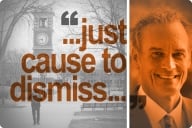You have /5 articles left.
Sign up for a free account or log in.
I had an unusually busy travel year. Usually, I go to one conference - at most. This time I went to an embarrassing number, and most of them were out of my discipline. One I went to because I got invited to be part of a panel; another related to an organization I’m involved with; a third came from an invitation based on a project of mine. I also was on the program of a totally virtual conference and attended my first unconference, all of which gives me an opportunity to reflect on the differences among conference cultures.
First, wow – people actually read papers at conferences! I’ve never actually seen this done at library conferences. Even at ACRL, where papers have to be prepared for publication long before they are actually presented, the paper is one thing, the presentation another. It’s nearly unheard of to present without some kind of slide show and audience involvement is fairly common. (So are PowerPoint slides densely packed with bullet points, alas.) But thought I had heard the expression “giving a paper” I had never actually seen presenters hold pages in their hands and read from them. That’s what I encountered at both the Conference on Composition and Communication Conference in Atlanta and the Popular Culture Association meeting in San Antonio as well as at a symposium on Steig Larsson and Scandinavian Crime Fiction held at UCLA last month, the most international of my experiences this year, with most of the speakers coming from Nordic countries. Papers in hand.
That said, I came away from all three events with tons of notes and lots of stimulating ideas. The papers I heard were good! And I find myself thinking about various ideas I encountered at all of these events, both when listening to speakers and at social gatherings. I left feeling I’d made friends and been welcomed into communities. I had gone wondering whether it made sense to travel so far and spend so much, but felt more positive about the idea of traditional scholarly conferences than I had expected.
The virtual conference I was involved with was different, but equally memorable. Ebooks: Libraries at the Tipping Point involved some heavy-hitter speakers, some much-cited presentations, and a lot of online chatter. As is typical at library-related events, vendors were out in force, but in a virtual exhibit hall. And yes, there was PowerPoint, but most of us were bullet-point averse to the point that some attendees objected that the slides would not be useful to download and study after the event.
The unconference was a fabulous gathering at St. Norbert College under the THATCamp digital humanities umbrella, this one with a liberal arts college focus. I had heard about THATCamp, but never experienced it before. It was a really refreshing way to organize an event. You invite people to apply, sign them up with blog accounts so they can post ideas for discussion in advance, get a few people to plan “bootcamps” – hands-on workshops – and then when the event begins, you bring everyone together to plan the schedule on the fly. Every session was lively, noisy, and engaging, and my only frustration was that I was following all of the concurrent sessions on Twitter (as well as the happenings at THATCamp Prime and the American Association of University Publishers conference, overlapping by a day) and was often thinking I was missing something cool happening elsewhere. But that generally wasn’t as painful as it might have been because someone took notes on every THATCamp session and immediately posted them online. It was the pinnacle of awesome, and it gave me ideas for organizing local faculty events as well as making me think I might just try this in an upper-division course next year – invite students to submit their interests in advance and plan the syllabus together.
A few final thoughts:
At the more “traditional” conferences, a lot of money was spent and much generated through registrations, there was a disproportionate ration of presenters to audience, and a few incredibly lavish receptions put on by textbook companies. No wonder those books cost so much! (Library conferences are embarrassingly full of swag and free meals, too.) Yet I was surprised that technology was not available in many of the rooms, guaranteeing more paper reading. In spite of all the money being splashed around, presentation equipment was considered too expensive.To me, it's pretty much basic equipment, unlike the pleated skirts every table was dressed in.
THATCamp LAC won hands down on the “bang for the buck” front. There was no registration fee; a cardboard box was used to collect donations at the end of the event. Attendees had the option of staying in a dorm (which was educational in its own way). The event was held in St. Norbert’s gorgeous new library, which has perfect meeting rooms for multiple events, including no shortage of wifi or power outlets. What more can one ask?
There was an awful lot of food - good food, too - at these events. Why does all that sitting require so much fuel? I need to lose some weight.
Finally – though I found each of these events incredibly stimulating, I haven’t had time to go back and think through the notes I took or contact all the people with whom I had planned to follow up. How do you decompress from a good conference? What do you do to make sure that energy and all those ideas don’t just dissipate when you get back to work and spend a few days catching up?





